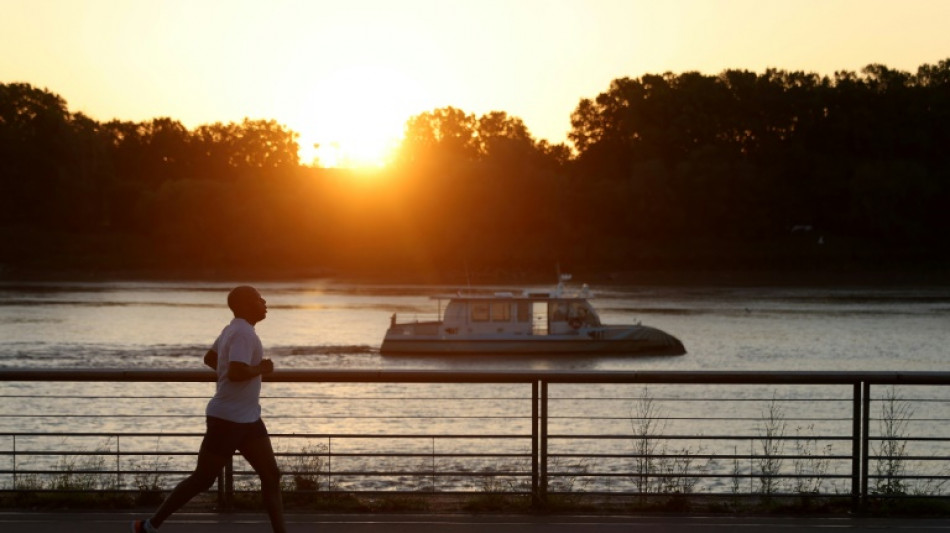
SCS
0.2300


Tens of millions of people in France sweated through a late summer heatwave on Monday, with record temperatures expected in the wine-growing Rhone valley region and a forest fire also blazing in the southeast.
Temperatures are expected to peak on Tuesday and Wednesday, with the most intense heat in the southern parts of the country where the mercury is already pushing past 40 degrees Celsius (104 Fahrenheit).
Health authorities have placed 50 out of 96 departments in mainland France in the second-highest heat warning level, with some areas expected to be placed in the maximum red category in the coming days.
"Some records could be broken, notably on Tuesday in the Rhone valley with 40-42C expected," national weather service Meteo France said.
The heatwave is "intense and long-lasting" and "particularly late in the season", it added, with a period of high pressure creating a "heat dome" over the country.
After a suffocating summer of record temperatures and forest fires in 2022, France has for the most part experienced a typical holiday period this year, escaping the intense heat that scorched southern Europe in July.
The current high temperatures were the hottest of the season, Meteo France said.
Many people headed to municipal swimming pools, fountains or the beach to cool off.
"We went to the pool, so it was a cheap and easy way to fight the heat," Nathalie Chopin told AFP in the southeastern city of Lyon.
"It's very hot. Otherwise, we stay in in our apartments, close the shutters and shut ourselves in."
- Fire fears -
After several weeks of dry weather, local authorities in the southern Gard area of France restricted access to forests due to the high risks of fires.
Around 260 firefighters were battling a fire near the village of Chanousse in the foothills of the Alps in southeast France, according to the Association for the Prevention and Reporting of Forest Fires.
It has consumed around 120 hectares (nearly 250 acres) of woodland, according to local authorities.
The high temperatures have also interfered with the scheduled re-starting of a nuclear power plant in Golfech in southwest France and could also lead to restrictions at a plant in Bugey in the Ain area, power group EDF said.
Heatwaves frequently affect France's river-side nuclear power plants which suck in river water for cooling purposes before discharging it downstream.
They are forced to reduce their water usage during hot spells to guard against excessive warming of rivers which could affect local ecosystems.
The highest temperature ever recorded in France was 46C, registered in June 2018 in the village of Verargues in southern France.
D.Johnson--TFWP